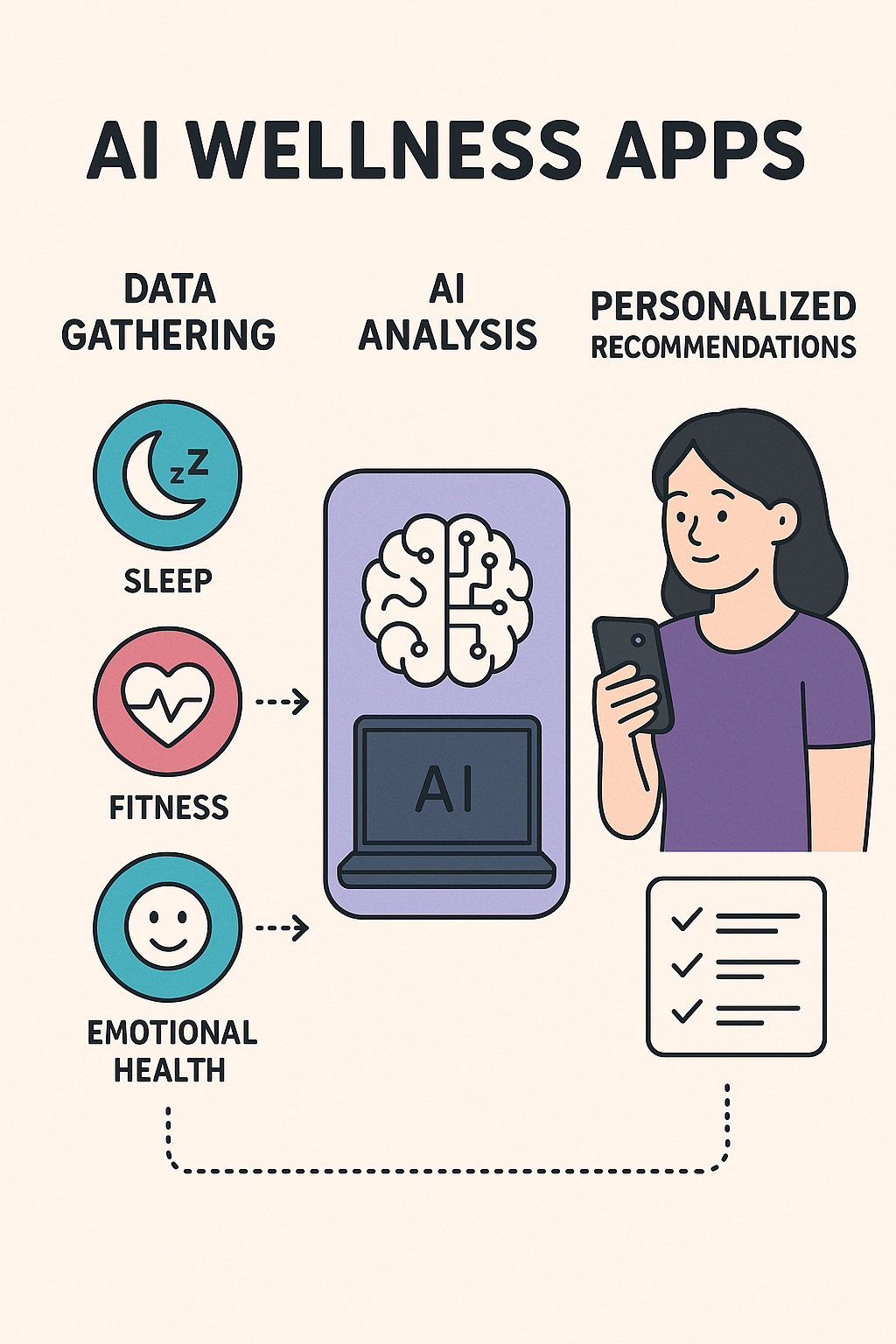Introduction
Artificial Intelligence is reshaping almost every aspect of our lives—including wellness. From fitness trackers to mental health apps, AI-powered technologies now offer personalized, precise, and proactive solutions to support overall well-being. But what exactly is AI wellness, and how is it improving our daily health routines?
What is AI Wellness?
AI Wellness involves leveraging artificial intelligence to optimize personal health through customized recommendations, real-time feedback, and intelligent analytics. AI-powered tools gather, interpret, and act upon data to support mental, physical, and emotional well-being, offering users a more tailored approach to self-care.
Key Applications of AI in Wellness
1. Personalized Fitness Coaching
AI algorithms analyze individual fitness data, adapting exercise routines to each user’s goals, fitness levels, and daily progress. Apps like Fitbod or WHOOP exemplify personalized fitness coaching, optimizing training sessions, and maximizing outcomes.
2. Mental Health and Emotional Wellness
AI-driven mental wellness apps, such as Woebot or Wysa, use natural language processing (NLP) and machine learning to deliver personalized emotional support, CBT techniques, and stress management strategies 24/7.
3. Sleep and Recovery Management
Apps powered by AI analyze sleep patterns, heart rates, and lifestyle habits to provide actionable insights. Devices like the Oura Ring use AI to deliver tailored sleep optimization and recovery recommendations.
4. Nutrition and Dietary Insights
AI tools such as Noom or Lumen offer personalized nutrition guidance, helping users make smarter dietary choices based on individual metabolic responses, fitness levels, and weight management goals.

Benefits of AI in Personal Health
-
Personalization: Tailors wellness programs uniquely to individual needs and goals.
-
Accessibility: Provides 24/7 support without the limitations of physical or geographical barriers.
-
Efficiency: Analyzes vast health data quickly, improving health decisions and outcomes.
-
Proactivity: Predictive analytics anticipate health issues before they become critical.
Challenges and Ethical Considerations
Despite significant advantages, AI wellness brings up critical considerations:
-
Data Privacy: Ensuring sensitive health data remains secure and private.
-
Dependence on Technology: Balancing technology use with human intuition and professional healthcare advice.
-
Algorithm Bias: Addressing biases that could lead to inaccurate or ineffective recommendations.
Future Trends: What’s Next in AI Wellness?
Looking forward, expect further integration of AI with wearable tech, smart home environments, and augmented reality, creating holistic, seamlessly integrated wellness experiences. Additionally, advancements in AI explainability will build trust and encourage more widespread adoption of AI-driven health solutions.
Conclusion
AI wellness signifies a pivotal shift toward individualized, accessible, and proactive health care. By harnessing AI technologies, individuals can achieve a more comprehensive approach to wellness, optimizing their physical, emotional, and mental health daily.
Ready to embrace the future of personal wellness? Subscribe to our newsletter for the latest insights on AI-powered wellness trends and innovations.

